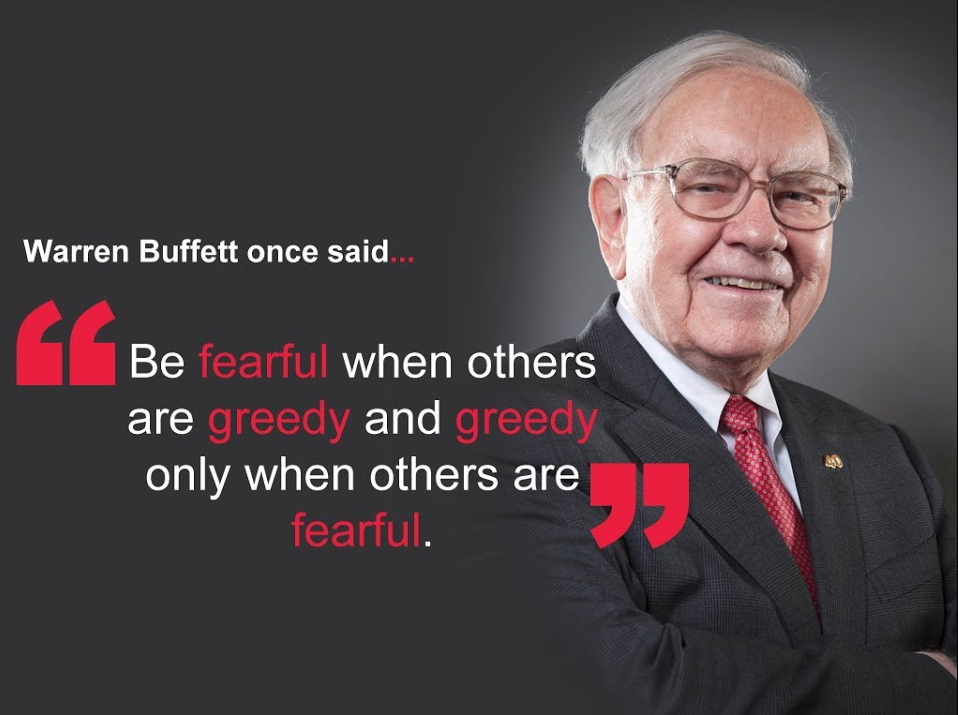Cut Loss or Average Down? (止损或者拉低成本?)
YOLO123
Publish date: Fri, 06 Nov 2020, 12:30 PM
The writer believes that most people will think about this question when the stock price dropped just after you bought it: whether to cut loss or average down? To be honest, there is no absolute answer as everyone has different confidence level, risk management and holding power.
During the shortest bear market in March, the writer believes that most people are very panic about their stock because share price has been dropping at least 50% from their peak, some may have their profit evaporated, and some may even suffer loss. Hence, most people may choose to sell most of their stock by that time, as uncertainties surfaced and more lies ahead. Little do they know, the market rebound just a week after and the uptrend continue until September.
So, back to the question, what shall we do if history do repeat? Since that awful experience, the writer will make sure he will always have a healthy cash position, where never go all in into stock market nor cash out everything. When there is really a market crash, assess the stock you are holding, and if you think that the company you possess will not be affected by much, hold the company or consider add some when the price is so low, hence averaging down the cost.
On the other hand, when you are not confident towards a company’s fundamental when you first bought it, selling it will be the best option, but do note that never sell when the market is crashing. You shall sell or reduce when the market has a slight rebound, but never when the whole market is dropping. The writer experienced both, being able to buy some shares after the slight rebound, but also suffer losses from panic selling during market crash. Hence, experience taught me that never repeat the same mistake, always remember the following:
- Never all in
- Always assess a company’s fundamental, hold or add if it is good
- Never sell when everyone is also selling, you will definitely regret
- Be greedy when others are fearful
These lessons really help when subsequent minor crashes happened. For example, glove sectors crashes twice, DJI dropped 1800 points and more to come. In short, manage your risk well, have faith in companies you invested and do the complete opposite as others when necessary.
笔者相信大多数投资者在买进一个股后,而股价下跌时总会想:“到底应该止损还是买底来拉低成本?“但其实,这并没有绝对的答案,毕竟每个人对这个股的信心不同,风险管理和持久的能力也因人而异。
在三月最短的熊市时,笔者相信大多数人都很彷徨,毕竟股价已从巅峰下跌了至少50%。有些人只是少赚了,而有些人已经蒙受亏损。因此,大多数人会在那时卖出,因为还有很多的不确定因素在前方。但是遗憾的是,市场在一个星期后已经开始回弹,并持续这个上升的趋势直到九月为止。
回到我们的问题,如果历史重演,我们究竟应该怎么部署?在那次经验过后,笔者会确定自己本身有足够的现金,也不会把整幅身家放进市场,但也不会完全卖完所有的股。当熊市真的到来时,重新评估自己所持有的股。如果发觉自己的股不会受到太大的影响,而股价只是暂时地下跌时,投资者反而可以考虑持有着它,甚至加码以拉低平均价。
反之,如果投资者对持有股没有太大的信心,或者基本面没有那么好时,卖掉它以换取现金是一个不错的选择。但切记,不能在市场暴跌时卖出,或许等待一个小回弹再卖出会比较好。笔者都经历过这两个情况,成功地在市场开始回弹时,买进一些之前买不到的股;但也在那时最糟糕的情况卖出并蒙受亏损。因此,这个经验让我避免再犯同一个错,也永远记得以下几个重点:
- 永远不要把整幅身家丢进股市
- 一直跟进和评估公司的基本面,机会浮现时就可以加码
- 不要在大家都抛售时也一起卖,这样一定会在过后后悔
- 当别人都在恐惧时,你便要更贪婪
这些经验真的让我在接下来的几次回调中都站稳脚步。举例,手套股的两次回调造成的恐慌,美国道琼指数暴跌1800点,还有未来可能会发生的大回调。总结,时刻做好风险管理,相信自己持有的公司并在适当时,做与大众相反的决定。

For more information, visit: https://www.facebook.com/InvestingKnowEverything/
More articles on Investing: Know Everything
Created by YOLO123 | Feb 02, 2021


















